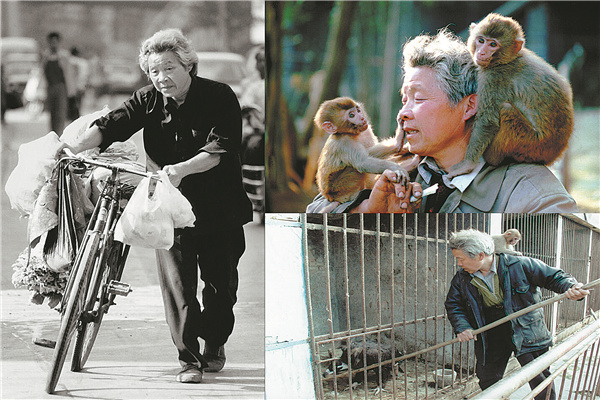One man and his menagerie


In 1986, he opened an animal exhibition on the square of the cinema, with support of the cinema's management, drawing over 100 visitors in half a day.
In 1989, the local government invited Luo to open a zoo with his wild animals and promised that the operation model would be privately owned and subsidized by the authorities. They offered 20,000 yuan to build the zoo, and Luo, his children and the animals moved there.
"I found that locals wanted to see wild animals. Enshi was in need of a zoo, which could broaden one's horizon. I wanted to do something for my hometown," Luo says.
On Jan 18, 1990, People's Daily reported the opening of Luo's zoo and his kind deeds of saving its animals.
The annual supplement from the local government was about 2,000 yuan, but that hasn't been in place since 1993, Luo says. In 1994, Luo applied to the authorities to seek public help, but none was forthcoming.
His retirement salary is about 5,000 yuan per month, which is sufficient to lead a decent life in a small place like Enshi.
However, to cover the zoo's expenses, he has spent all his savings and has even fallen into debt. "It's expensive to feed the lion, tiger and python, but I can't let the animals starve," he says.
He lives economically, eats simple meals and never dines out at restaurants. Sometimes he picks up empty bottles to sell to support the zoo. But he's generous to the animals, whose daily cost of food is now about 400 yuan due to the rising prices in recent years.
Over the years, Luo has fully devoted himself to the zoo and persisted, even when, in 2006, the local government asked him to move to a more remote place during a transformation project.
He says his selflessness is something he has carried over from his army days. He joined the army in 1964 and became a member of the Communist Party of China in 1968.When he was set to retire from the army, his senior officer told him to do good deeds for the people.
"My education in the army is indelible. The most important thing for a Party member is to put collective interest before their own," he says.




































